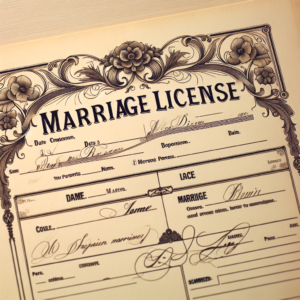Unveiling the Truth: The Global Battle Over Same-Sex Marriage Laws
[caption id="attachment_35115" align="alignnone" width="1245"] Family Life[/caption]
The global battle over same-sex marriage laws has emerged as a defining issue of the 21st century, reflecting broader struggles for human rights and equality. As nations grapple with the complexities of legal recognition for same-sex unions, the discourse surrounding marriage equality is influenced by historical contexts, cultural attitudes, and international advocacy. This article delves into the multifaceted landscape of same-sex marriage legislation worldwide, examining key milestones, societal perspectives, and the ongoing efforts to secure equal rights for all individuals, regardless of sexual orientation.
Understanding the Historical Context of Same-Sex Marriage Legislation Worldwide
The journey toward same-sex marriage legislation is deeply rooted in historical contexts that vary significantly across different regions. In many Western countries, the late 20th century marked a pivotal shift, as the LGBTQ+ rights movement gained momentum following the Stonewall riots of 1969. This period catalyzed a broader societal acknowledgment of sexual diversity, leading to increased advocacy for legal recognition of same-sex relationships. Conversely, in numerous non-Western nations, traditional values and religious beliefs have historically marginalized LGBTQ+ communities, resulting in a slower progression toward acceptance and legal reform. Understanding these historical nuances is essential for comprehending the current landscape of same-sex marriage laws globally.
Key Legal Milestones in the Global Fight for Same-Sex Marriage Rights
The legal recognition of same-sex marriage has witnessed several landmark milestones that have shaped the global narrative. The Netherlands became the first country to legalize same-sex marriage in 2001, setting a precedent that inspired other nations to follow suit. Subsequent years saw a wave of legal reforms, with countries like Canada, Spain, and Argentina enacting similar laws. The United States Supreme Court's ruling in Obergefell v. Hodges in 2015 was a significant turning point, affirming the constitutional right to marry for same-sex couples across the nation. However, the battle for marriage equality is far from uniform; while some countries have embraced legal recognition, others have enacted laws that explicitly prohibit same-sex marriage, highlighting the ongoing disparities in global legal frameworks.
Cultural Perspectives: How Societal Attitudes Shape Marriage Laws
Cultural attitudes play a crucial role in shaping the legal landscape surrounding same-sex marriage. In societies where traditional views on marriage and family prevail, opposition to same-sex unions often stems from deeply ingrained cultural and religious beliefs. For instance, in many African and Middle Eastern countries, same-sex relationships are stigmatized, leading to legal prohibitions and social ostracism. Conversely, in more progressive societies, changing attitudes toward LGBTQ+ rights have facilitated the acceptance of same-sex marriage, reflecting a broader commitment to human rights and equality. This cultural dichotomy underscores the importance of societal attitudes in influencing legislative outcomes and the ongoing struggle for marriage equality.
The Role of International Organizations in Promoting Equality
International organizations have played a pivotal role in advocating for same-sex marriage rights and promoting equality on a global scale. Entities such as the United Nations and various non-governmental organizations have actively campaigned for the decriminalization of homosexuality and the recognition of LGBTQ+ rights as fundamental human rights. Through reports, resolutions, and advocacy campaigns, these organizations have sought to raise awareness about the discrimination faced by LGBTQ+ individuals and to encourage nations to adopt inclusive policies. The influence of international organizations is particularly significant in regions where local advocacy efforts may be met with resistance, providing a platform for marginalized voices and fostering a global dialogue on equality.
Case Studies: Landmark Court Rulings on Same-Sex Marriage
Several landmark court rulings have significantly advanced the cause of same-sex marriage, serving as critical case studies in the global fight for equality. In 2013, the Supreme Court of the United States struck down the Defense of Marriage Act (DOMA), which had denied federal recognition to same-sex marriages, thereby paving the way for Obergefell v. Hodges. Similarly, in 2018, the Supreme Court of Taiwan became the first in Asia to legalize same-sex marriage, marking a historic moment for LGBTQ+ rights in the region. These rulings not only reflect judicial progress but also highlight the role of the judiciary in interpreting constitutional rights and advancing social change. By examining these cases, we can better understand the legal mechanisms that have facilitated the recognition of same-sex marriage in various jurisdictions.
Future Implications: The Ongoing Struggle for Marriage Equality Globally
As the global battle for same-sex marriage laws continues, the implications for future advocacy and legal reform are profound. While significant progress has been made in many countries, the persistence of legal barriers and societal opposition in others underscores the ongoing struggle for marriage equality. Activists and allies must remain vigilant, advocating for comprehensive legal protections and challenging discriminatory practices. Additionally, the rise of populist movements in various regions poses new challenges to LGBTQ+ rights, necessitating a renewed commitment to solidarity and intersectional advocacy. The future of marriage equality will depend on the collective efforts of individuals, organizations, and governments to foster an inclusive society that recognizes and respects the rights of all individuals, regardless of their sexual orientation.
The global battle over same-sex marriage laws is emblematic of a broader struggle for human rights and equality, reflecting the complexities of cultural, legal, and societal dynamics. As nations navigate this contentious issue, the importance of understanding historical contexts, legal milestones, and cultural perspectives cannot be overstated. The ongoing efforts of international organizations and the impact of landmark court rulings serve as beacons of hope for advocates of marriage equality. While challenges remain, the collective pursuit of justice and recognition for LGBTQ+ individuals continues to shape the future of marriage laws worldwide, underscoring the necessity of perseverance in the fight for equality.
